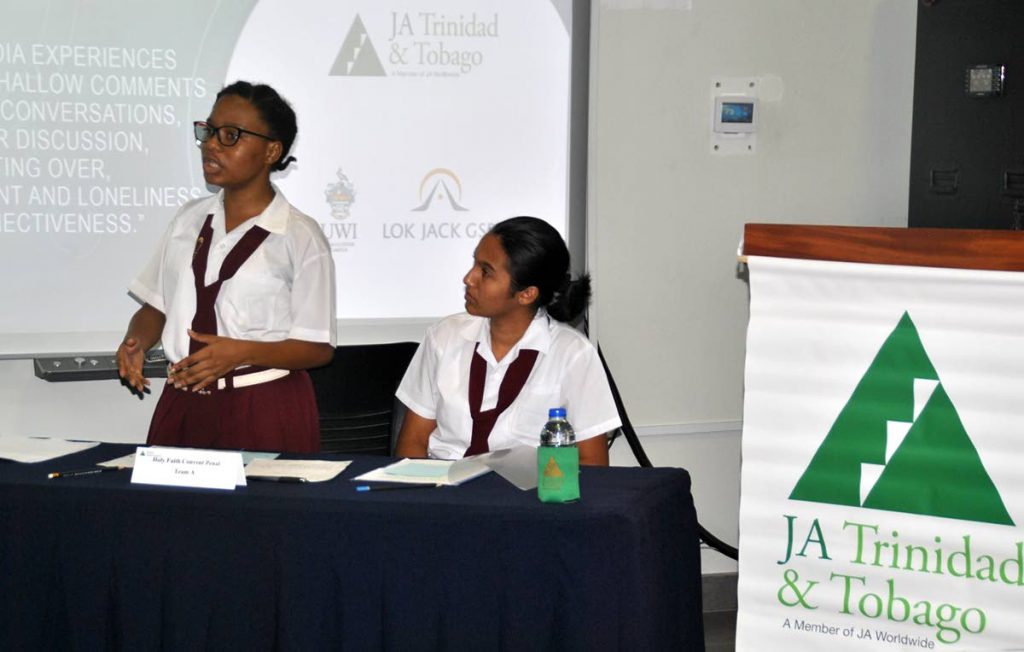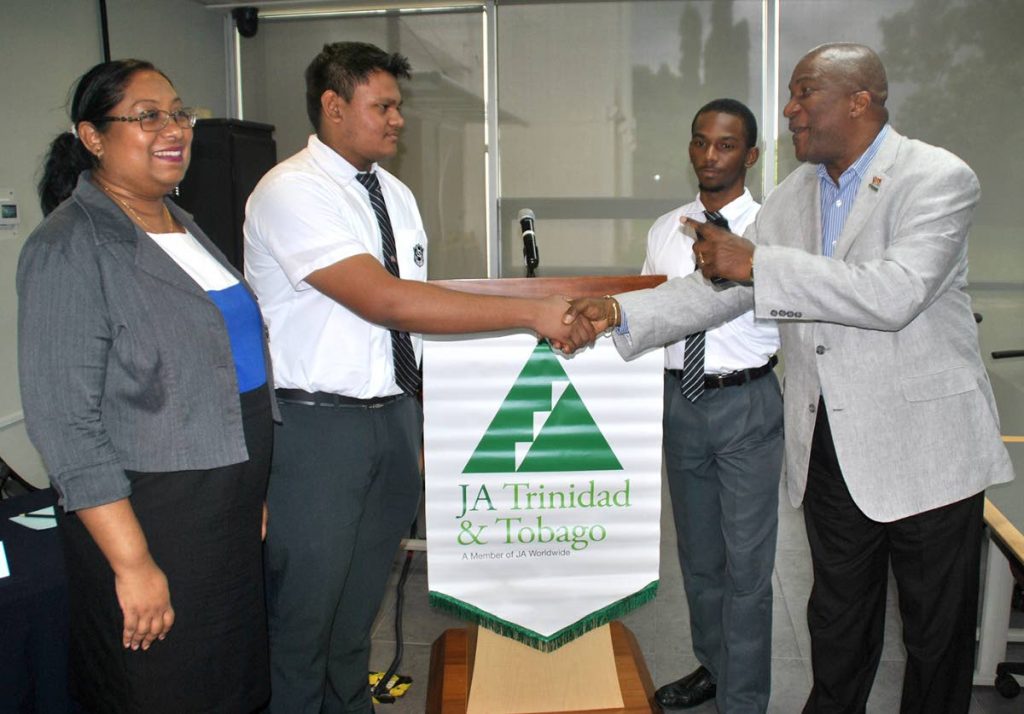‘Naps’ wins opening JA debate

Naparima Boys College A team won the preliminary round of Junior Achievement (JA) Leadership Debate Series with a convincing performance to advance to the second round of the competition.
The Naparima A team pairing of Vashisht Ramoutar and Joel Beckles earned the judges’ nod over Holy Faith Convent (Penal) A team as they proposed the motion: “Be it resolved that social media experiences promote shallow comments over deep conversations, posts over discussion, broadcasting over engagement and loneliness over connectedness.”
On October 3, Naparima and Holy Faith Convent were the first schools to face off for the tournament being held at the Arthur Lok Jack Graduate School of Business, Valsayn. Defending champions Presentation College Chaguanas A team, who were expected to open this year’s challenge, enjoyed a walkover by default as their scheduled opponents, St Augustine Girls’ High School (SAGHS), forfeited their position, said a media release.
St Joseph’s Convent, St Joseph, also advanced to the second round on a default.
In the opening debate which was attended by schools participating in the series, Naparima’s lead speaker Ramoutar argued that although social media played a big role in the lives of people all over the world, research demonstrated that there was little connectedness, and experiences were mostly shallow.
“People using social media tend to lose their social skills; they feel more comfortable hiding behind a screen.
“The use of social media tends to make people lonely and leads to reduced connectedness. They broadcast rather than engage and post more than they discuss.”
Leading off Holy Faith Convent’s reply, Marylee Ann Cruickshank countered that social media was built on four platforms: deep conversation, discussion, engagement and connectedness. It facilitated networking on a large scale, she noted. “Social media is not run by a machine. People use it. People manage and drive it. It is up to the user to make interactions deep or light. The outcome depends on each one of us,” she argued.
Chelsea Maloney, representing Holy Faith Penal, said social media promoted engagement, whether it was positive or negative.

She cited as an example the LGBT community which, she argued, made effective use of social media to promote their cause.
According to Maloney, another example of the telling use of social media was the changing of TT’s buggery laws.
Judges for the debate were Dr Rose-Ann Walker, Merle Carrington and Allan Benjamin. Cherrie Charles chaired proceedings, while Elizabeth Calder performed duties as timekeeper.
In his opening remarks, JA executive director J Errol Lewis, commended the participating schools for taking up the challenge to engage in the competition on a topical and timely subject. He thanked the Arthur Lok Jack Graduate School of Business for collaborating with JA to put on the debate series for the second year running.
Lewis said, “I must also let you know that Arthur Lok Jack has extended scholarships for several JA students from our after-school programme. We are grateful for this collaboration since it enhances the academic future of these young people.”


Comments
"‘Naps’ wins opening JA debate"